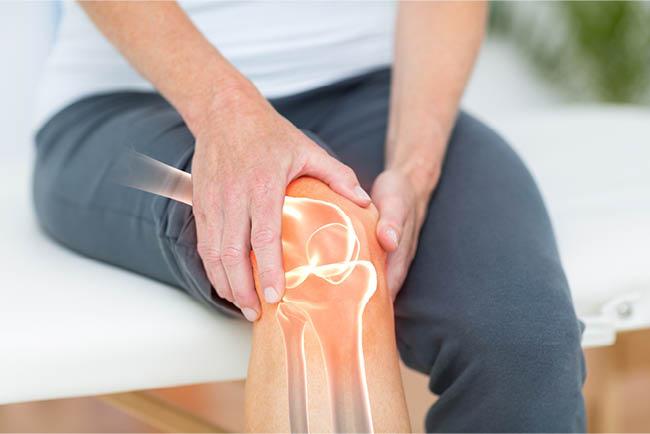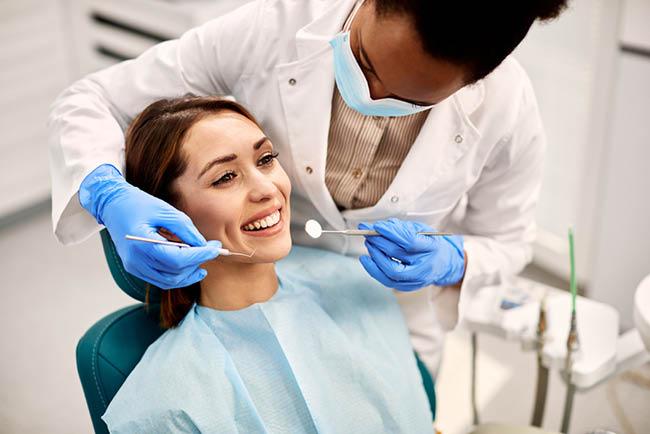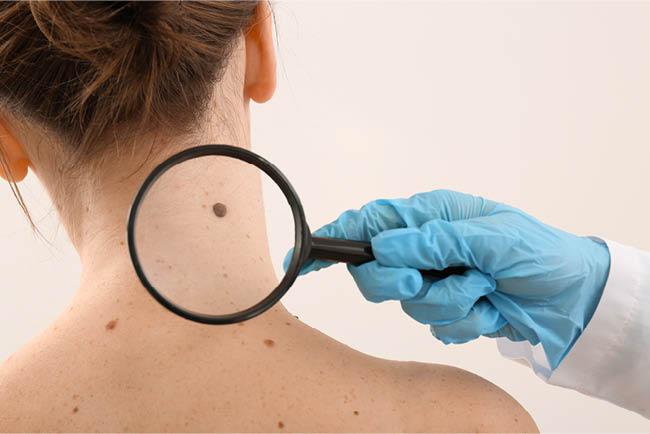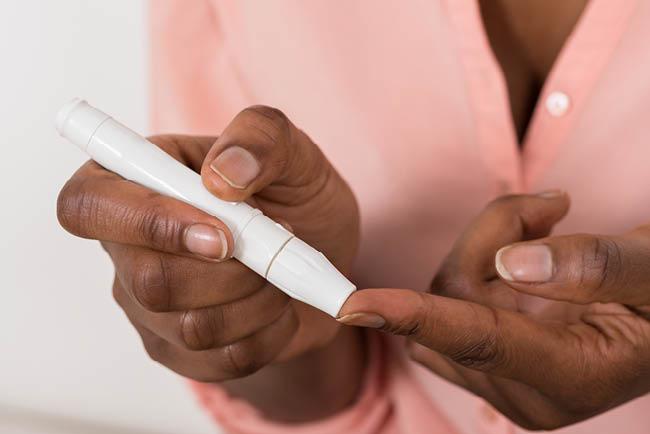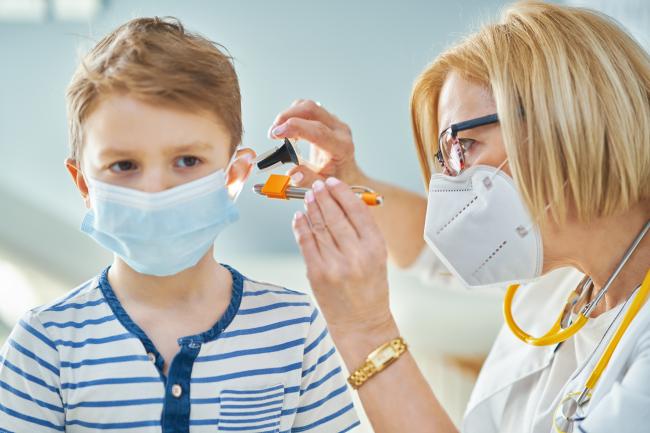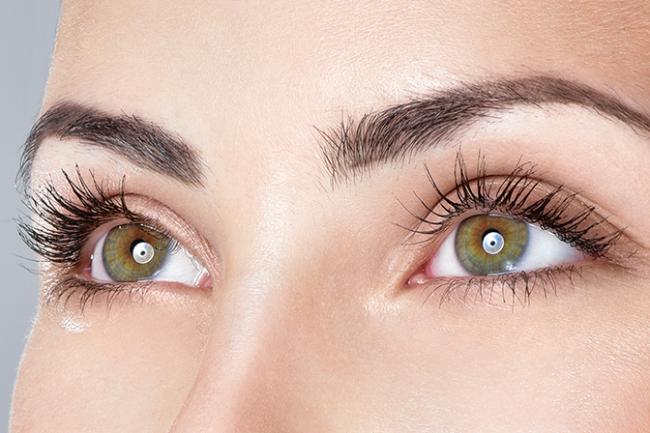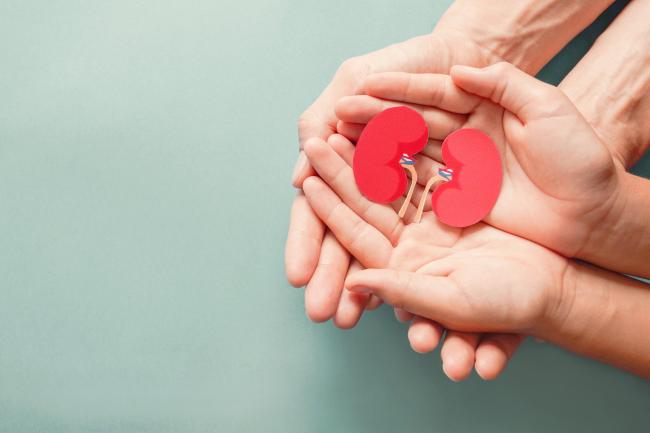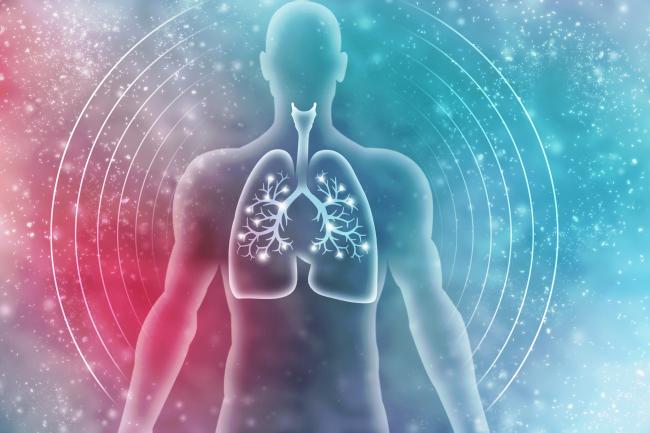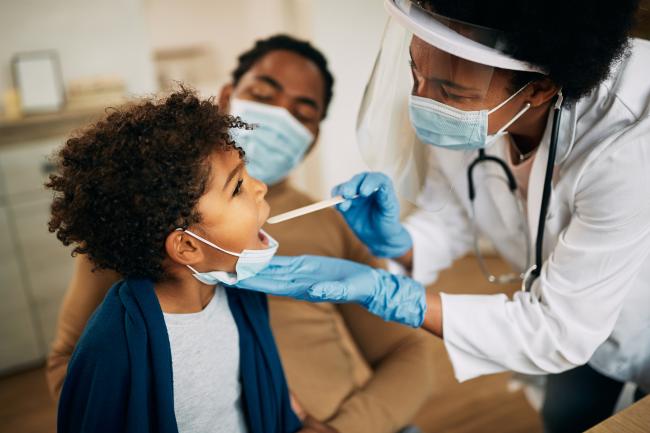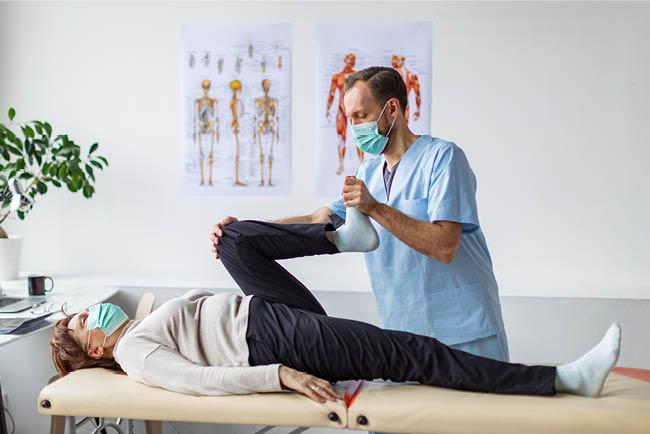Search Studies
Research studies are looking for volunteers just like you. Both healthy volunteers and participants with specific health conditions are needed to help answer important questions impacting the health of our friends and family. Join us to improve the health of others.
-
A First-in-human Study of a New Gene Therapy (AMT-260) in Adults with Unilateral Refractory Mesial Temporal Lobe Epilepsy (MTLE)
Official Title A Multi-center, Phase 1/2a, First-in-human (FIH) Study Investigating the Safety, Tolerability, and Efficacy of AMT-260 in Adults with Unilateral Refractory Mesial Temporal Lobe Epilepsy (MTLE) Administered via Magnetic Resonance Imaging (MRI)-guided Convection-enhanced Delivery (CED)Purpose
You are being invited to participate in a study about mesial temporal lobe epilepsy (MTLE) on only 1 side (unilateral) of the brain that has not responded to medication (refractory).
The study will test AMT-260, which is a new gene therapy under investigation for use in treating people like you with MTLE. It is not yet approved as a drug for treating MTLE. It can only be used in a study like this one. This is the first time this gene therapy will be used in humans. It has previously been studied in animals.
AMT-260 is a gene therapy designed to reduce the electrical signals between nerve cells (neurons) in the parts of your brain where nerve cells are abnormally connected. This reduces the extra electrical signals that happen at the same time and is intended to reduce your seizure activity.
The overall goals of this study are:
- To observe whether participants have any side effects from AMT-260 or from the procedure to deliver AMT-260 into the brain and how well participants tolerate any side effects that may occur.
- To measure if participants have changes in:
- frequency of their seizures
- how their seizures affect their life
- how the human body takes up and removes AMT-260
- To find the best dose of AMT-260 for future participants to ensure clinical benefit with minimal or no side effects.
Could this study be right for you?
Adult, 18-65 years of age, inclusive, capable of giving informed consent.
Written informed consent is given freely after the nature of the study has been explained to the participant and the completion of data disclosure.
Willingness to undergo necessary surgical procedures.
Diagnosis of unilateral refractory MTLE for ≥360 days, confirmed by an Epilepsy Monitoring Unit.Additional Eligibility Criteria to be assessed by neurosurgery team, and as described in the study protocol.
Age Range
18 - 65 years -
Teen Depression Study
Official Title Developing Rumination-Focused Treatment to Reduce Risk for Depression Recurrence (RDR) in Adolescence (RuMeChange)Purpose
We are conducting a study looking at how therapy strategies can help teenagers stay healthy, reduce rumination, or overthinking and worrying, and prevent depression relapse. If eligible, the teenager would complete assessments which include clinical interviews over Zoom, surveys, cognitive testing, and an MRI.
A parent/guardian is required to enroll in the study and will complete questionnaires and a clinical interview as well.
Could this study be right for you?
Inclusion Criteria:
- 14-17 years of age at enrollment
- Youth assent and parent consent
Exclusion Criteria:
- Metal braces, tattoos with metal
- Claustrophobia
- Current pregnancy
Age Range
14 - 17 years -
A Study to Evaluate Lutikizumab in Adults with Moderate to Severe Hidradenitis Suppurativa
Official Title A Phase 3 Multicenter, Randomized, Double-Blind Placebo-Controlled Study to Evaluate the Efficacy and Safety of Lutikizumab in Adult and Adolescent Subjects with Moderate to Severe Hidradenitis SuppurativaPurpose
The purpose of this study is to evaluate the efficacy of lutikizumab
Could this study be right for you?
- Subject must have a diagnosis of moderate to severe hidradenitis suppurativa (HS) for at least 6 months with lesions in 2 distinct areas
- Subject must have tried a 12-week (about 3 months) trial of oral antibiotics with inadequate improvement
- Subject must be in good general health with no history of tuberculosis, HIV, or hepatitis B or C
- Subject must have no recent history (within 6 months) of significant medical conditions such as a heart attack or stroke
- Female subjects must not be pregnant, breastfeeding, or considering becoming pregnant for the duration of the study
Age Range
18 years and up -
Spironolactone Versus Doxycycline for the Treatment Acne in Women
Official Title A Randomized, Double-Blind, Multi-Center Comparative Effectiveness Study Of Spironolactone Versus Doxycycline Hyclate For The Treatment Of Acne In WomenPurpose
To determine whether spironolactone is non-inferior to the oral tetracycline-class antibiotic doxycycline hyclate in the treatment of acne in women
Could this study be right for you?
-
Assigned female at birth
-
Acne defined as at least 10 inflammatory papules or pustules
-
Not currently pregnant or planning to become pregnant
-
Willing to attest to abstinence or some form of contraception for the duration of the study (4 months). Approved options of birth control to use during the study include:
- Hormonal contraception (for example, birth control pills, injection, implant, transdermal patch, vaginal ring)
- Intrauterine device (IUD)
- Tubal ligation (tying your tubes)
- Partner with a vasectomy
- Male or female condom with spermicide
- Diaphragm with spermicide
- Cervical cap contraceptive sponge with spermicide
Age Range
16 - 40 years -
-
A Study to Evaluate Minoxidil for Treatment of Hair Loss in Patients with Breast Cancer on Endocrine Therapy
Official Title A Pilot Trial of Topical vs Oral Minoxidil for Treatment of Endocrine Therapy-Induced Alopecia in Breast Cancer PatientsPurpose
The purpose of this study is to evaluate the efficacy of minoxidil.
Could this study be right for you?
- Subjects must have a diagnosis of breast cancer stages I-IV
- Subjects must have hair loss while on endocrine therapy (i.e., tamoxifen or an aromatase inhibitor such as anastrozole)
- Subjects must not be on chemotherapy or have been on chemotherapy within 2 years
- Subjects must not have tried oral or topical minoxidil or spironolactone previously
- Female subjects must not be pregnant, breastfeeding, or considering becoming pregnant for the duration of the study
Age Range
18 - 70 years -
A Study to Evaluate Anifrolumab in Adults with Active Subacute or Chronic Cutaneous Lupus Erythematosus
Official Title A Multicenter Randomized, Double-blind, Placebo-controlled, Phase III Study to Evaluate the Efficacy and Safety of Anifrolumab in Adults with Chronic and/or Subacute Cutaneous Lupus Erythematosus who are Refractory and/or Intolerant to Antimalarial TherapyPurpose
-
Subject must have a diagnosis of cutaneous lupus erythematosus
-
Subject must have tried antimalarial treatment (i.e., hydroxychloroquine, quinacrine, or chloroquine) for at least 12 weeks (about 3 months) or was unable to tolerate antimalarial treatment due to side effects
-
Subject must be in good general health with no history of tuberculosis, cancer, HIV, or hepatitis B or C
-
Female subjects must not be pregnant, breastfeeding, or considering becoming pregnant for the duration of the study
Could this study be right for you?
- Subject must have a diagnosis of cutaneous lupus erythematosus
- Subject must have tried antimalarial treatment (i.e., hydroxychloroquine, quinacrine, or chloroquine) for at least 12 weeks (about 3 months) or was unable to tolerate antimalarial treatment due to side effects
- Subject must be in good general health with no history of tuberculosis, cancer, HIV, or hepatitis B or C
- Female subjects must not be pregnant, breastfeeding, or considering becoming pregnant for the duration of the study
Age Range
18 - 70 years -
-
Social Abilities and Aging Study
Official Title Progression of Social Cognitive Deficits in Mid- and Late-Life Schizophrenia Spectrum DisordersPurpose
This research is being done to investigate the effects of age on social cognition in schizophrenia spectrum disorder. The study also hopes to examine potential neural bases of social cognition. The findings of the research will help develop effective treatment strategies by identifying who, when, and how to intervene.
Could this study be right for you?
Patients:
- Diagnosis of a schizophrenia spectrum disorder (includes schizophrenia, schizoaffective disorder, bipolar disorder with psychotic features, schizophreniform disorder, unspecified or other-specified psychotic disorders)
Healthy Controls:
- No history of any psychotic disorder
- No psychiatric diagnosis in the last 5 years
- Not taking psychotropic medication
Age Range
35 - 75 years -
An Investigational New Drug for the Treatment of Alzheimer’s Disease
Official Title A Phase 1, Randomized, Double-Blind, Placebo-Controlled Study Evaluating the Safety, Tolerability, and Pharmacokinetics of Single Escalating Doses of LH-001 in Healthy SubjectsPurpose
The purpose of this study is to evaluate the safety and tolerability of an investigational new drug in healthy participants aged 18-60 years.
Could this study be right for you?
- In good health and BMI (ratio of body weight to height) between 18-29.9 kg/m2
- Willing to participate in various research assessments including blood collection, urine collection, electrocardiogram, and vital signs
- Willing to stay overnight (~30 hours) in the OSU Hospital Clinical Research Center
- If sexually active, willing to utilize highly effective birth control during the study period
- Not currently pregnant or breast-feeding
- No significant medical condition involving any major organs (heart, lung, liver, brain, or endocrine)
- No to any of the following: alcohol or substance abuse, spleen problems, or drug hypersensitivity
- No history of or undergoing treatment for: major psychiatric illness, seizures, or autoimmune disease
- Not currently taking immunosuppressive drugs
- No active Hepatitis B, Hepatitis C, or HIV
- No cancer history within 5 years (squamous and basal cell skin cancer excluded)
Age Range
18 - 60 years -
IMPROVE-AD Trial: IMPRoving Outcomes in Vascular DisEase
Official Title IMPROVE-AD Trial: IMPRoving Outcomes in Vascular DisEase – Aortic DissectionPurpose
The goal of this study is to figure out the best way to treat type aortic dissection. An aortic dissection is a tear in the wall of the aorta. The aorta is a big blood vessel that carries blood from your heart to the rest of your body. Individuals with this problem usually get medicine or a special repair procedure. This procedure is called thoracic endovascular aortic repair (TEVAR). TEVAR is a procedure where a metal tube (called a stent), is inserted in the damaged part of the aorta. The study is being done to figure out which treatment works better. The results of the study may help to prevent future problems with the aorta or other health issues.
Could this study be right for you?
Inclusion:
- Age > 21 years
- Stanford type B aortic dissection not involving the aorta at or proximal to the innominate artery, without rupture and/or malperfusion (renal, mesenteric, or extremity)
- Acuity: within 48 hours – 6 weeks of index admission
Exclusion criteria:
- Ongoing systemic infection
- Pregnant or planning to become pregnant in the next 3 months
- Life expectancy related to non-aortic conditions < 2 years
- Prior surgery for aortic dissection
Age Range
21 years and up -
AAA-SHAPE Trial: Abdominal Aortic Aneurysm Sac Healing and Prevention of Expansion
Official Title AAA-SHAPE Pivotal Trial: Abdominal Aortic Aneurysm Sac Healing and Prevention of ExpansionPurpose
The purpose of this research is to determine if the IMPEDE-FX RapidFill System is safe and helps to shrink abdominal aortic aneurysm (AAA - a bulge or swelling due to weakening of the walls of the aorta, which is the main blood vessel that carries blood from your heart to other parts of your body) sacs after an endovascular stent graft (a fabric tube supported by metal wire stents that reinforces a weakened aorta) has been placed. The IMPEDE-FX RapidFill System used in this study is classified as investigational, which means it has not been approved by the Food and Drug Administration (FDA).
Could this study be right for you?
Inclusion:
- A candidate for elective EVAR of an infrarenal fusiform aortic aneurysm ≥5.5 cm in diameter in men and ≥ 5.0 cm in women
- Thrombus burden (percentage of the AAA sac occupied by thrombus) <50%, based on pre-procedure CTA
- Maximum Lumen diameter within the AAA sac of ≥40mm
- The predicted minimum number of IMPEDE-FX RapidFill Implants for the subject is ≤200
Exclusion:
- An inability to provide informed consent
- Enrolled in another clinical study that could interfere with the outcomes being studied in this trial
- Unable or unwilling to comply with study follow-up requirements
Inclusion and Exclusion Criteria varies, please contact Study Coordinator for more information.
Age Range
18 years and up -
Study with LGBTQ+ tobacco users and vapers
Official Title Sexual and gender diverse young adults' preferences for nicotine and tobacco product attributesPurpose
We are inviting LGBTQ+ folks to share their opinions about product features (e.g., flavors, nicotine levels) and other factors (e.g., stress, social media, marketing) that make people want to try or continue to use tobacco products.
Could this study be right for you?
- Able to speak English fluently
- Identify as LGBTQ+
- Used nicotine/tobacco products in the past 30-days (cigarettes, cigars, cigarillos, e-cigarettes, etc.)
- Reside in the U.S.
Age Range
18 - 34 years -
Operating microscope versus traditional dental loupes - improving the view of dental surgery to save dental implants.
Official Title Operating Microscope versus Traditional Loupes during Regeneration Therapy for Peri-implantitis: A Randomized Controlled Trial with Ultrasonographic and Biomarkers EvaluationPurpose
The purpose of this study is to compare the one-year outcomes of treating peri-implantitis with periodontal surgical means between the use of an Operating Microscope and dental loupes.
This study includes the comparisons of the changes of inflammation of the gums, the bacteria present, and wound healing at the surgical site between the two methods. The hypothesis is that the use of the operating microscope, compared to dental loupes, is associated with better bacteria removal, quicker inflammatory resolution, and improved wound healing, which will contribute to better outcomes.
This study is 15 months, but your actual appointment time in the study, outside of the surgery itself, will be 6 – 9 hours. This will be in 6 study visits of 60 – 90 minutes in length.
Could this study be right for you?
Inclusion criteria: Participant has at least one implant indicated for peri-implant regenerative treatment.
Exclusion criteria: Participant has known systemic conditions and medication interactions that can affect healing of the surgical site.
Age Range
18 - 99 years


